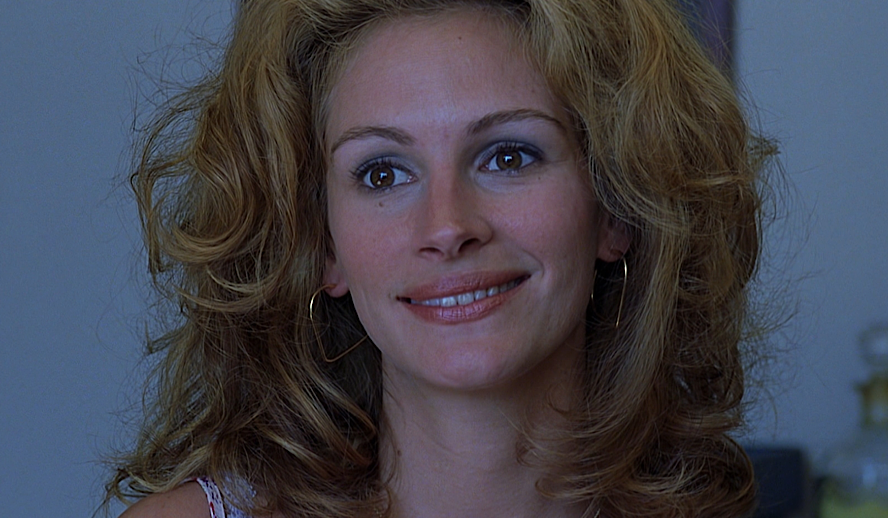Table of Contents

Video Version of this Article
Photo: 10 Greatest Legal Dramas
One of Cinema’s greatest powers is its ability to imbue a certain spectacle in the seemingly mundane. No genre represents this power better than that of the legal drama. Someone who may shudder at the thought of jury duty may be completely enthralled by the dramatized revelations of a tumultuous trial or impassioned by the fate of a seemingly doomed defendant. Very few classes of film allow for a more succinct and direct analysis of the human condition alongside the looming notions of truth and justice, playing a large factor in its sustained prevalence over the past 100 years.
This genre has fostered some of the most memorable movie moments and instantly iconic characters of all time during its existence, casting a sizable shadow over the industry and reeling in some of its most accomplished talent. The list below serves as a selection of some of the greatest unions between law and film as well as an examination of the many unique styles and forms their connection can inspire.
Related article: EXCLUSIVE: ‘Dune’ Full Commentary, Reactions, Making Of – Timothee Chalamet, Zendaya, Oscar Isaac
10 Greatest Legal Dramas:
10.) ‘Rashomon’ (Akira Kurosawa, 1950)
The samurai, the wife, the bandit, or the woodcutter – who can be believed? That is the question at the heart of legendary Japanese director Akira Kurosawa’s seminal contemplation on the unknowability and ultimate corruption of the truth; ‘Rashomon’ (1950). While not his first feature, the film made Kurosawa an internationally recognized auteur and served as the first Japanese feature to receive significant global acclaim. ‘Rashomon’ opens on a woodcutter, a priest, and a commoner seeking refuge from a torrential downpour beneath a desolate city gate. The priest and woodcutter recount the extraordinary story of the trial they had both come from that dealt with the death of a noble samurai and abuse of his wife at the hands of the notorious bandit Tajōmaru.
The audience is then shown the conflicting recounts of the event at the trial from the perspective of the deranged criminal, hysterical widow, and the dead man’s vengeful spirit by way of a medium. Each feature numerous contradictions, only straightened out by the final story forced out of the woodcutter after he reveals to the two men that he had hid the fact that he had secretly watched the whole affair from a nearby bush. Teaming with ‘Seven Samurai’ (1954) collaborators Toshirō Mifune and Takashi Shimura as the bandit and woodcutter respectively, the film is undoubtedly Kurosawa’s earliest masterpiece. While the treatment of the samurai’s wife is terribly dated and the conclusion centers upon a laughably convenient infant-ex-machina, ‘Rashomon’ remains a vital stepping stone in both the film industry of Japan and the cinematic relationship between fact and fiction.
Related article: EVOLUTION: Every Henry Cavill Role From 2001 to 2021, All Performances Exceptionally Poignant
Related article: EVOLUTION: Every Chris Evans Role From 1997 to 2020, All Performances Exceptionally Poignant
9.) ‘Anatomy of a Murder’ (Otto Preminger, 1959)
Dubbed the “finest pure trial movie ever made” by co-author of the book Reel Justice: The Courtroom Goes to the Movies (2006) Michael Asimow, Otto Preminger’s cumulative courtroom epic ‘Anatomy of a Murder’ (1959) proves itself worthy of every second of its 161-minute runtime. Adapted from the 1958 novel of the same name penned under a pseudonym by Michigan Supreme Court Justice John D. Voelker based on a case from his past, the film expertly explores the often neglected moral gray area of the law and its servants. There is no domineering and unreasonable judge, nor is there a particularly evil set of prosecutorial attack dogs, and to top it all off the defense freely admits he committed the murder he stands trial for.
Nonetheless, James Stewart’s indelible lawyer Paul Biegler must mount a case to free Ben Gazzara’s Fred Mannion and navigate the web of small-town lies and long-held secrets that muddy the truth. Biegler’s client stands accused of the murder of a local innkeeper after he raped and brutalized Mannion’s wife Laura portrayed by Lee Remick. Facing a famed “big-city” lawyer named Claude Dancer (the debut performance of the remarkably young George C. Scott), Biegler is forced to consult every rule in the book to arrive tepidly at the notion of justice. Jazzily scored by famed composers Duke Ellington and Billy Strayhorn, ‘Anatomy of a Murder’ moves along remarkably fast despite its daunting size, never losing sight of its unique tone and style.
Related article: #metoo Revolution: Powerful Questions That Need Answers
Related article: FACT-CHECKED Series: Timothee Chalamet and 32 Facts about The Young Superstar
8.) ‘Witness for the Prosecution’ (Billy Wilder, 1957)
In many ways, the British counterpart to ‘Anatomy of a Murder’, Billy Wilder’s ‘Witness for the Prosecution’ (1957) was cited by famed mystery novelist Agatha Christie as her favorite film adaptation of any of her work. The film centers on Charles Laughton’s instantly memorable brutally sarcastic barrister Sir Wilfred Robarts who has been strictly mandated to a diet of bland civil suits after a near-fatal heart attack. He is however lured back into the world of the criminal courts by the sensational case of Tyrone Powers’ seemingly mild-mannered Leonard Vole who stands accused of murdering a wealthy older widow.
Despite ardent protests from his distraught nurse and his own failing health, Sir Wilfred sets out to prove the man innocent by way of his cold and reluctant wife famously portrayed by German starlet Marlene Dietrich. Featuring Wilder’s trademark witty dialogue and fully realized characters, the film has grown in cultural status over the years thanks in large part to its shocking last-minute reveal sure to make even M. Night Shyamalan jealous. This twist led to the film becoming one of the first to feature a “spoiler warning” attached to its credits, informing audiences “The management of this theater suggests that, for the greater entertainment of your friends who have not yet seen the picture, you will not divulge to anyone the secret of the ending of ‘Witness for the Prosecution’.”
Related article: MUST WATCH – The Hollywood Insider’s CEO Pritan Ambroase’s Love Letter to Black Lives Matter – VIDEO
Subscribe to The Hollywood Insider’s YouTube Channel, by clicking here.
7.) ‘To Kill a Mockingbird’ (Robert Mulligan, 1962)
Adapting one of the most influential novels of all time may rightfully seem an emphatically impossible endeavor, films like ‘1984’ (1984) and ‘The Great Gatsby’ (2013) scarcely scratching the surface of their forebears. But Robert Mulligan’s masterful ‘To Kill a Mockingbird’ (1962) has long endured as the exception that proves the rule. Derived from Harper Lee’s 1960 Pulitzer Prize-winning semi-autobiographical examination of her challenging childhood growing up in the segregated South, the film interpretation stays true to the author’s earnest intent and expert execution.
A prototypical reflection on racial injustice and the abhorrent skin-deep prejudices that crippled America for centuries, the story centers upon a life-changing summer for 6-year-old Scout Finch. Scout, her brother Jem, and their friend Dill are preoccupied with the fantasmic tales of their reclusive next-door neighbor Boo Radley, but when Scout and Jem’s father Atticus decides to defend a Black man named Tom Robinson faced with fabricated racially motivated rape charges the children must confront the terrible truths of racism that lie right outside their door. Headlined by an Oscar-winning performance from Gregory Peck as Atticus, one of the screen’s most memorable heroes, the film adaptation takes Lee’s immortal words and injects a daring sense of urgency into them, putting every audience member into Scout’s shoes and asking them whether they can sincerely claim America as the land of “liberty and justice for all.”
Limited Time Offer – FREE Subscription to The Hollywood Insider
6.) ‘The Verdict’ (Sidney Lumet, 1982)
While not the last time Sidney Lumet’s name will appear on this list, the director’s lesser-known 1982 legal drama ‘The Verdict’ is among the best and most underrated of his filmography and the genre at large. Centering upon Paul Newman in one of the most compelling performances of his entire career, the film tells the story of a washed-up alcoholic attorney named Frank Gavin disgraced by a fraudulent jury tampering accusation and forced into the dishonorable world of ambulance-chasing. On the verge of complete collapse, Gavin is tossed a seemingly open-and-shut medical malpractice case the defense has already agreed to settle out of for a large sum. The case regards a woman who was administered a shady anesthetic during childbirth at a prominent Catholic hospital, proceeding to choke on her own vomit which deprived her of oxygen and left her in a permanently comatose state.
After examining the case, Gavin declines to settle much to the shock and confusion of all parties involved, the dishonored lawyer catching on to a monumental cover-up by the hospital and finally finding his footing on the road to redemption after a five-year free fall. Much like Lumet’s other masterful legal drama, ‘The Verdict’ succeeds not by its own self-righteous interpretation of the law but rather by its morally complicated characters trying their best to do what they think is right.
Related article: The Hollywood Insider’s CEO Pritan Ambroase: “The Importance of Venice Film Festival as the Protector of Cinema”
Related article: The Masters of Cinema Archives: The Hollywood Insider Pays Tribute to ‘La Vie En Rose’, Exclusive Interview with Director Olivier Dahan
Related article: – Want GUARANTEED SUCCESS? Remove these ten words from your vocabulary| Transform your life INSTANTLY
5.) ‘Erin Brockovich’ (Steven Soderbergh, 2000)
As far as star vehicles go in the realm of legal dramas, they don’t get any better than Steven Soderbergh’s remarkable ‘Erin Brockovich’ (2000) and the unmatched lead performance by Julia Roberts as the titular real-life figure at the film’s center. Every frame Roberts occupies practically bursts off the screen and those in which she does not appear, though remarkably few, her phenomenal presence is sorely missed. The plot of the film and the achievements of its extraordinary protagonist cannot be better summarized than they are on the film’s poster; “she brought a small town to its feet and a huge corporation to its knees.” The film begins with Brockovich, an unemployed mother of three desperately searching for a job, getting caught in a nasty car accident and hiring a cheap lawyer named Ed Masry portrayed by Albert Finney to defend her in court.
They lose the case and later that week Ed finds Erin working at his small firm. She talks him into hiring her and gives her a low-level real estate case to file centering on massive utility Pacific Gas & Electric Company attempting to buy Hinkley, California resident Donna Jensen’s home. Brockovich is confused by the fact that Jensen’s medical records are attached to the real estate paperwork but soon realizes PG&E had been paying for the family’s cancer treatment. Realizing she may have stumbled onto something, Brockovich discovers that the utility had been leaking a carcinogenic compound called hexavalent chromium into the groundwater of the town, poisoning hundreds of Hinkley households. An emotionally resonant and methodically told story of second chances and unthinkable victory, ‘Erin Brockovich’ is an authentic revelation worthy of the dynamic heroine it is based upon.
Related article: ‘House of Gucci’ Full Commentary & Behind the Scenes – Lady Gaga, Adam Driver, Jared Leto, Al Pacino
4.) ‘JFK’ (Oliver Stone, 1991)
Oliver Stone’s epic political thriller ‘JFK’ (1991) redefined the way many Americans look at one of the most important events in the nation’s history; the assassination of the 35th President of the United States, John F. Kennedy. Very few films swing as big and hit as hard as Stone did, challenging the consensus over JFK’s death and offering a comprehensive and surprisingly convincing ulterior thesis that has grown in popularity and notoriety as more declassified information has trickled out over the past thirty years. Despite its title, the film actually centers upon Kevin Costner’s Jim Garrison, the District Attorney of New Orleans who becomes bewitched by the case and begins his own investigation. His passion is reignited by the release of the Warren Report in which he sees numerous inaccuracies.
Garrison begins an unrelenting odyssey into the underworld of the U.S. government, threatening to unearth long-buried ghosts and untie the boundless web of conspiracies waiting just beyond his reach. His pursuit leads him to the mysterious benefactor and potential prime suspect Clay Shaw, face to face with a high-level all-telling Washington D.C. official known as “X”, and into a tempestuous trial in which he lays bare all that he has and questions the very soul of America. ‘JFK’ is a startlingly poignant and exceedingly prescient journey sure to leave audience members with a thousand more questions than answers, for as Joe Pesci’s David Ferrie memorably informs Garrison, “it’s a mystery, wrapped in a riddle inside an enigma, and the shooters don’t even know.”
Related article: “What, Like It’s Hard?” – 20 Years of Reese Witherspoon’s ‘Legally Blonde’ | A Tribute
Related article: ‘Worth’: Netflix’s New Gripping Michael Keaton Legal Drama
3.) ‘The Passion of Joan of Arc’ (Carl Theodor Dreyer, 1928)
In the 97 years since its release, Carl Theodor Dreyer’s immensely influential silent French masterpiece ‘The Passion of Joan of Arc’ (1928) is one of Cinema’s foremost landmarks. Based upon the recovered transcripts of the actual recorded trial of the fated yet canonized teenage warrior Joan of Arc, the film follows the legendary French martyr after she leads her country to several major victories in the Hundred Years’ War and is captured by the English. Joan was put on trial for claiming to have spoken to God, a postulation deemed blasphemous by her captors due to her oppositional allegiance and womanhood.
She is relentlessly tortured and forced into altering her story by the villainous English clergy, but ultimately remains steadfast in her assertion. She is declared guilty and subsequently burned at the stake, a riot breaking out and the words “you have burned a saint!” flashing across the screen. Stage actress Renée Jeanne Falconetti portrayed Joan with breathtaking candor and tragic faith, cementing herself as one of film’s most impactful figures despite only ever earning one single credit to her name. Altogether, ‘The Passion of Joan of Arc’ lives on as one of the foremost achievements in film and a pitch-perfect depiction of ignorance and malice being disguised as law and order.
Related article: Oscar Nominee Andrew Garfield’s Career Resurgence: His Marvel-ous Career From Superheroes to Oscars
2.) ‘Paths of Glory’ (Stanley Kubrick, 1957)
There is a reason that Stanley Kubrick’s name is synonymous with pure cinematic perfectionism. Every single genre the director touched was transformed and revolutionized by his work; ‘2001: A Space Odyssey’ (1968) for science-fiction, ‘The Shining’ (1980) for horror, ‘Barry Lyndon’ (1975) for period pieces, and ‘Paths of Glory’ (1957) for the legal drama. Set on the No Man’s Land front of World War I, the film centers on the trial of three unlucky soldiers after an unsuccessful attack on a fortified German encampment called the “Anthill”. Kirk Douglas starred as Colonel Dax, a former prosecutor and the leader of the battalion of men charged with storming the stronghold. After the attack breaks and the men retreat, the ambitious and sadistic General Mireau launches a court-martial and demands 100 of their own soldiers be killed as an example.
He is talked down into one from each company, to be given a sham trial and then executed. One of the fated men is selected because his commanding officer didn’t like him in school, another because he is “socially undesirable”, and the final is chosen randomly by lot. Faced with unthinkable injustice, Dax demands that he serve as their defense in court, finding the trial to be a complete farce conducted only for show. Kubrick expertly blends the massive dehumanizing cloud of war with a harrowingly personal story of one man’s fight to save his soldiers’ lives, creating what would be the greatest legal drama of all time if not for the final film on this list.
Related article: Why The Oscars Should Have An Award for the Best Stunts Category
Related article: Oscar Snubs: The Top 10 Actors Ignored By Oscars for Best Actor & Best Actress Awards
1.) ‘12 Angry Men’ (Sidney Lumet, 1957)
It will shock no one to find Sidney Lumet’s ‘12 Angry Men’ (1957) occupying the final spot on this list. No filmic analysis of the American tenets of truth and justice has ever pierced the global zeitgeist more intensely than Lumet’s flawless debut feature. As its title suggests, the film centers upon 12 particularly angry men trapped together in a single room and forced to mull over the fate of an 18-year-old boy accused of murdering his father. The film begins as the boy’s trial concludes and the jury is sent off to deliberate and reach a unanimous final verdict of guilty or not guilty, the former leading to the defendant receiving the death sentence. The jury believe themselves to be in complete agreement, taking a preliminary vote only to find themselves 11-to-1 in favor of guilt.
The hold-out is revealed to be Henry Fonda’s Juror 8, who argues for innocence on the basis of reasonable doubt. The rest of the men are dismissive, some deeply prejudiced against the defendant based on the color of his skin, others disinterested by the matter entirely, and one who just wants to get through with the ordeal so he can attend a baseball game.
Related article: If Oscars New Rules Had Existed 80 Years Ago, These Deserving Stars Would Not Have Been Ignored
Related article: Oscars Diversity Guarantee: What the Academy Awards’ New Rules Mean?
Related article: Will the Diversity in Victory of Oscars 2019 – 91st Academy Award Winners Ever Be Repeated?
Little by little, Juror 8 wins his contemporaries to his side, challenging the alarming cavalier with which some of the jury play with the matter of life and death. ‘12 Angry Men’ is frequently regarded by many as one of the greatest films ever made, regardless of era or genre. Consequently, this must make it the greatest of both its era and genre and as such the best legal drama of all time. Your honor, I rest my case!
Honorable Mentions: ‘All That Money Can Buy’ (1941), ‘Inherit the Wind’ (1960), ‘Judgment at Nuremberg’ (1961), ‘The Trial’ (1962), ‘A Man for All Seasons’ (1966), ‘Kramer vs. Kramer’ (1979), ‘A Few Good Men’ (1992), ‘Philadelphia’ (1993), ‘Michael Clayton’ (2007)
By Andrew Valianti
Click here to read The Hollywood Insider’s CEO Pritan Ambroase’s love letter to Cinema, TV and Media. An excerpt from the love letter: The Hollywood Insider’s CEO/editor-in-chief Pritan Ambroase affirms, “We have the space and time for all your stories, no matter who/what/where you are. Media/Cinema/TV have a responsibility to better the world and The Hollywood Insider will continue to do so. Talent, diversity and authenticity matter in Cinema/TV, media and storytelling. In fact, I reckon that we should announce “talent-diversity-authenticity-storytelling-Cinema-Oscars-Academy-Awards” as synonyms of each other. We show respect to talent and stories regardless of their skin color, race, gender, sexuality, religion, nationality, etc., thus allowing authenticity into this system just by something as simple as accepting and showing respect to the human species’ factual diversity. We become greater just by respecting and appreciating talent in all its shapes, sizes, and forms. Award winners, which includes nominees, must be chosen on the greatness of their talent ALONE.
I am sure I am speaking for a multitude of Cinema lovers all over the world when I speak of the following sentiments that this medium of art has blessed me with. Cinema taught me about our world, at times in English and at times through the beautiful one-inch bar of subtitles. I learned from the stories in the global movies that we are all alike across all borders. Remember that one of the best symbols of many great civilizations and their prosperity has been the art they have left behind. This art can be in the form of paintings, sculptures, architecture, writings, inventions, etc. For our modern society, Cinema happens to be one of them. Cinema is more than just a form of entertainment, it is an integral part of society. I love the world uniting, be it for Cinema, TV. media, art, fashion, sport, etc. Please keep this going full speed.”
More Interesting Stories From The Hollywood Insider
– Want GUARANTEED SUCCESS? Remove these ten words from your vocabulary| Transform your life INSTANTLY
– A Tribute to Martin Scorsese: A Complete Analysis of the Life and Career of the Man Who Lives and Breathes Cinema
– Do you know the hidden messages in ‘Call Me By Your Name’? Find out behind the scenes facts in the full commentary and In-depth analysis of the cinematic masterpiece
– A Tribute To The Academy Awards: All Best Actor/Actress Speeches From The Beginning Of Oscars 1929-2019 | From Rami Malek, Leonardo DiCaprio To Denzel Washington, Halle Berry & Beyond | From Olivia Colman, Meryl Streep To Bette Davis & Beyond
– In the 32nd Year Of His Career, Keanu Reeves’ Face Continues To Reign After Launching Movies Earning Over $4.3 Billion In Total – “John Wick”, “Toy Story 4”, “Matrix”, And Many More
Legal dramas, Legal dramas, Legal dramas, Legal dramas, Legal dramas, Legal dramas, Legal dramas, Legal dramas, Legal dramas, Legal dramas, Legal dramas, Legal dramas, Legal dramas, Legal dramas, Legal dramas, Legal dramas, Legal dramas, Legal dramas, Legal dramas, Legal dramas, Legal dramas, Legal dramas, Legal dramas, Legal dramas, Legal dramas, Legal dramas, Legal dramas, Legal dramas, Legal dramas, Legal dramas, Legal dramas, Legal dramas, Legal dramas, Legal dramas, Legal dramas, Legal dramas, Legal dramas, Legal dramas, Legal dramas, Legal dramas, Legal dramas, Legal dramas, Legal dramas, Legal dramas

Andrew Valianti is a writer and an aspiring producer-director, and all-around film lover. While writing both features and reviews for the Hollywood Insider, Andrew has focused on the intersection of cinema and politics as they relate to empowering diverse stories and viewpoints. Through both study and practice, Andrew has seen first hand the many ways in which film and media can have a positive and meaningful impact on everyday lives. His personal views align with the Hollywood Insider, as he views journalism as a means to empower and mobilize positive change rather than spread gossip or negativity. He believes that art ignites action and has sought to pursue stories that further this goal.








